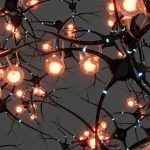
Julian Mutz discusses the results of a new 10-week RCT assessing home-based brain stimulation for depression, which suggests that tDCS may be a safe, acceptable and efficacious treatment for moderate depression.
[read the full story...]
Julian Mutz discusses the results of a new 10-week RCT assessing home-based brain stimulation for depression, which suggests that tDCS may be a safe, acceptable and efficacious treatment for moderate depression.
[read the full story...]
Sofiia Kornatska considers a recent systematic review on effective and feasible psychological interventions for populations under ongoing threats; including terrorist attacks, shootings, fire, physical and psychological abuse, political and armed violence, and ongoing intimate partner violence.
[read the full story...]
Dona Matthews summarises a recent trial which suggests that Acceptance and Commitment Therapy can maintain or improve quality of life for people with early stage motor neuron disease.
[read the full story...]
We all had an extra hour in bed this weekend, but what impact does shifting the clocks back and forward each year have on our life satisfaction?
Melanie De Lange summarises a recent study on the welfare effects of time reallocation, which uses Daylight Saving Time evidence from Germany.
[read the full story...]
In her debut blog, Ana Julia Ferreira summarises a randomised controlled trial investigating the effectiveness of a digital self-help intervention for improving bulimic-spectrum disorder symptomatology while on a treatment waiting list.
[read the full story...]
A team of experts from the Global NIHR Centre for IMPACT consider the findings of a recent review, which looks at the effectiveness and implementation of psychological interventions for depression in people with non-communicable diseases in Pakistan and Bangladesh.
[read the full story...]
Lorna Collins reflects on a systematic review exploring the benefits of Hearing Voices and other self-help groups for people with auditory hallucinations.
[read the full story...]
Lorna Collins reviews a cross-sectional study that found the quality of life of people with psychosis is higher when they participate in leisure activities.
[read the full story...]
In her debut blog, Ella Tuominen considers the Tavistock Adult Depression Study (TADS), which evaluated the cost-effectiveness of long-term psychoanalytic psychotherapy for treatment resistant depression compared to treatment as usual.
[read the full story...]
In her debut blog, Nuria Gardia explores a qualitative study on loneliness experiences among people with mental health difficulties in the UK, which finds that mental health problems can lead to people feeling lonely, and feeling lonely can lead to poorer mental health.
[read the full story...]